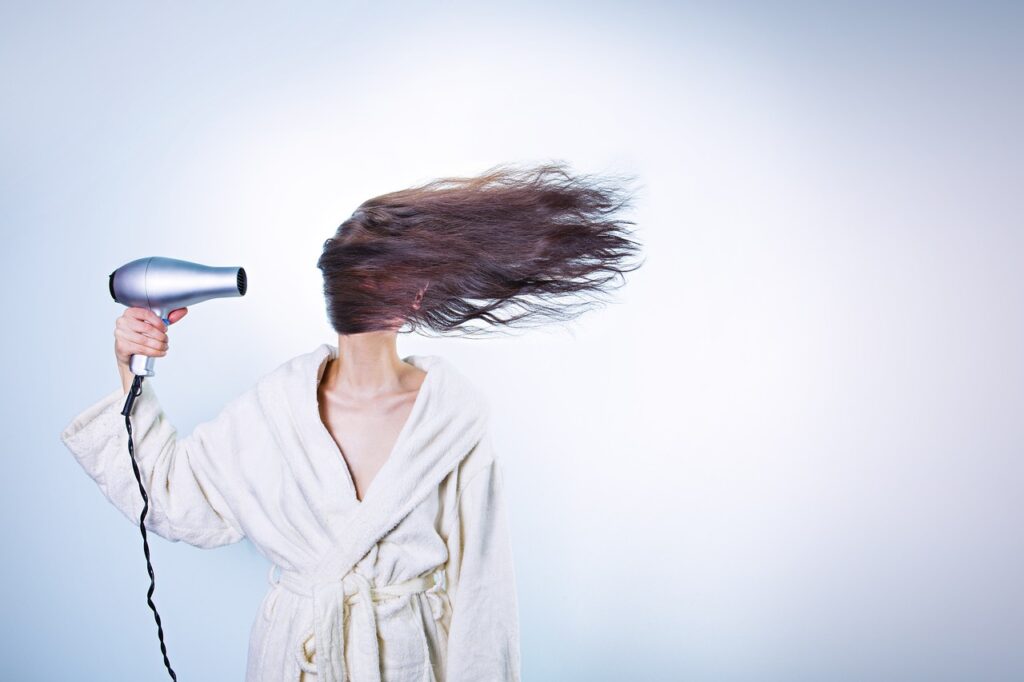Credit: Pixabay/CC0 Public Domain
Two florida state university researchers have found that Smartphone-Based Clinical Interventions May Reduce appearance appearance-Related anxiety in Women Experiencing HIGH Levels of CONECERN Abs appearance.
The study, by professor of psychology jesse cougle and clinical psychology doctoral student tapan patel, has been Published in the Journal of Consulting and Clinical Psychology,
“Technology can lead to negative mental health effects, so one of my biggest driving questions with this research was how I can inste use technology to improve people,” SAID PATEL, ” Study’s Lead Author and a Member of the Cougle Lab in FSU’s Department of Psychology.
“One of the most professional things I’ve Learned in My Work Studying Anxiety is that the best way to deal with fear is to face it, so this lead me to ask: how can we use technology to help people face
Between 69 and 84% of Women over the age of 18 Experience Body Dissatisfaction and desire to be a lower weight than they are, according to the National Eating Disorders Association.
Body Dissatismsfaction’s negative effects, such as irregular eating habits and self-consciousness, can lead to social anxiety and eating disorders, as well as low sell self-setteem and depressively Symptoms.
Cougle and Patel Recruited 203 Women aged 18 to 65 Years old in the us who reported Increased Increated appearance concerns. The team then administerred two different Monthlong Interventions and Found Evidence that their solutions alleviated the women’s appearances
“Anxiety about one’s physical appearance is a significant problem that can be assumed affected affect a person’s quality of life,” Cougle said. “Anxiety is common and a symptom of multiple psychiatric conditions including disorders concerning, body dysmorphia and social anxiety. Developed for appearance anxiety that did not require therapist involvement and was delivered via participants’ phones. “
The Researchers Designed Two Techniques-One Monitoring appearance-Related Safety Behaviors, or Arsb, and the other monitoring unhealthy behaviors, or uhb-hab-hab-sub-ha Text Messages and Provided Daily Checklists and Avoidance Reminders through the monthlong study.
One Intervention Asked Participants to Self-Record and Reduce how often they engaged in arsb, which are behaviors that can offer reliaf from a person’s appearance anxiety, such as Checking ASS Checking AS The mirror, avoiding situations where one’s body is expected, comparing one’s appearance to others’ and more.
The Control Intervention Asked Participants to Self-Record and Reduce Their UHB-Cactivities That Typically MainTain Low Levels of Mood and Low Self-SELF-SUCH AS FREF SUCH AS FRECT NAPPINT NAPPINT NAPPINT NAPPING UP or Doomscrolling on Social Media Before Bed.
Resarchers found that the intervention targeting arsb lad to lower UHB.
“Completing a full study with important implications like this, in just a more months, as tapan did, is an impressive feat – competely for treatment outcom Research,” COLGLE SAID. “This study was the culmination of years of research we have been conducting on appearance-Related Safety Behaviors and Tapan’s ompressive research on the topic, which hee’s published on extensively.”
Cougle and Patel Hope to Incorport Additional Components in their intervention and test their use for the prevention of psychiatric disorders like body dysmorphic disorder, Social Anxiety Disorder and more. They also hope to test its efficacy in men.
“We started this project to determine how to improve treatment by targeting Anxiety, “Patel said.
“This study displayed that the idea is sound, and having our research published was an ecstatic feeling. It’s motivating to know that colleagues in the field are encouraging and EnthusISTIC AbOT Means a great deal to know our research could help people. “
More information:
Tapan A. Patel etc., Safety Behavior Reduction for appearance Concerns: a randomized controlled trial of a smartphone-based intervention., Journal of Consulting and Clinical Psychology (2024). Doi: 10.1037/ccp0000920
Citation: Decreasing appearance anxiety in women through smartphone-based interventions (2025, February 20) retrieved 20 February 2025 from
This document is Subject to copyright. Apart from any Fair Dealing for the purpose of private study or research, no part may be reproduced without the written permission. The content is provided for information purposes only.
(Tagstotranslate) Medicine Research News (T) Medicine Research (T) Health Research News (T) Health Research (T) Health Science (T) Medicine Science


